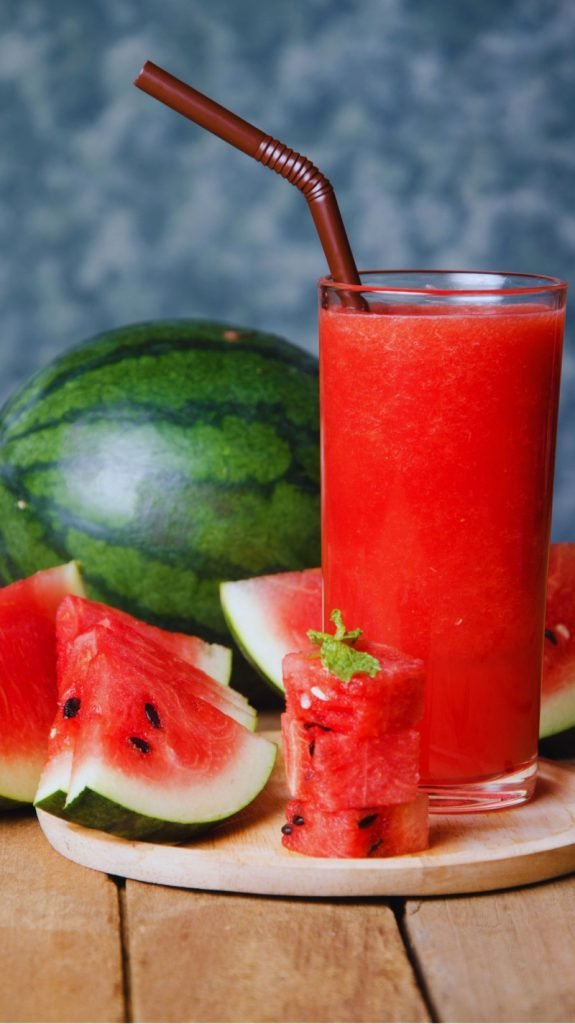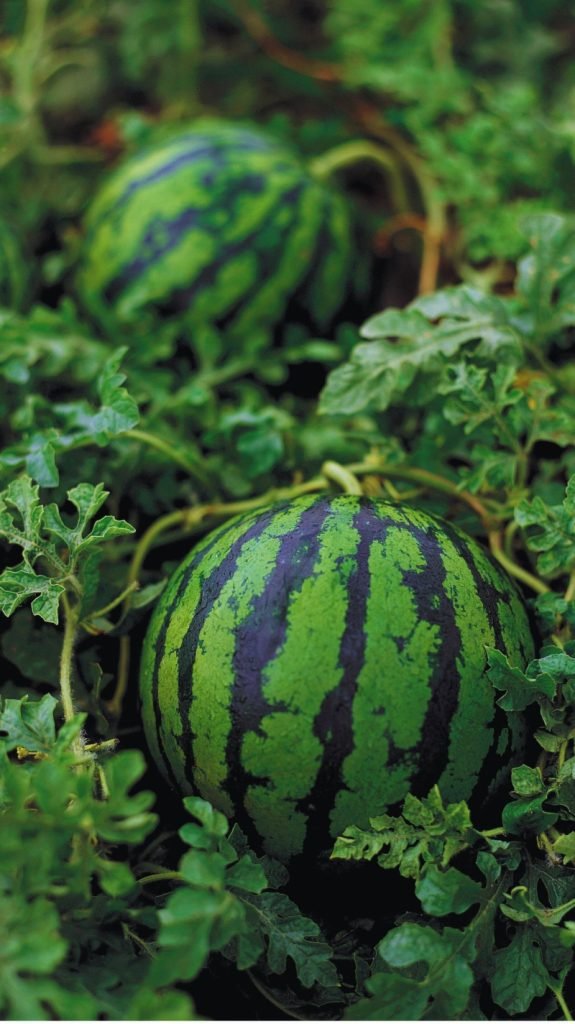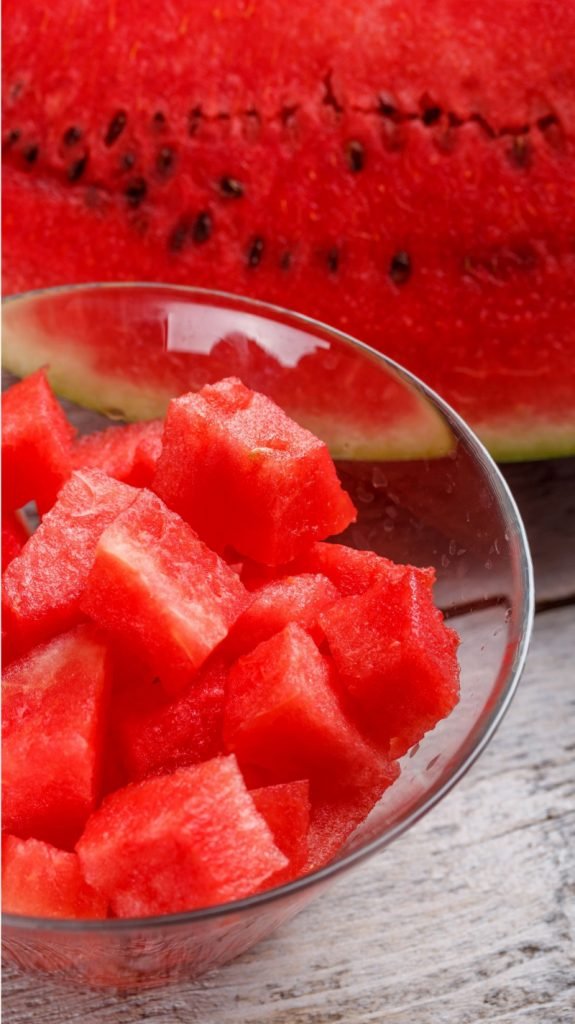The health benefits of watermelon are simply awesome. This large, sweet tasting fruit is a superfood and a must consume for every home.

Watermelon (Citrullus lanatus) is a juicy fruit remarkable for its large size (about 20 -25 pounds), hard green exterior and pink to blood red flesh. It is said to have originated from Africa, though today it has been domesticated in many countries worldwide (1).
In the United States alone, there are over 300 varieties of watermelon that are cultivated with the most popular being the seeded, the seedless and the mini watermelon (2).

Nutrition Profile
Watermelons contain over 91% water and the nutrition profile of a 100g serving of watermelon is as follows (3):
- Energy: 30kcal
- Protein: 0.6g
- Carbohydrate: 7.6g
- Fat: 0.1g
- Fiber: 0.4g
- Vitamin C: 8.1g (14% of the Daily Value (DV)
Watermelon can be cut and eaten alone, added to fruit or vegetable salads, juiced, added to smoothies, or pureed.
Health Benefits of watermelon
Keeps the body hydrated
The body loses about 2 – 3 quarts of water everyday via sweating, eliminating waste and exhaling. This water lost must be replaced or else the body will be dehydrated (4).
Staying hydrated is very important because the body needs water to effectively carry out its everyday functions. These include the regulation of body temperature, flushing out of wastes, transportation of nutrients, lubrication of joints and enhancement of brain function (5).
Moreover, the quality of sleep, mood and cognitive functions are all enhanced when the body is well hydrated (5).
Over 91% of watermelon is water, therefore, consuming watermelons regularly is a great way to stay hydrated (3).
Experts recommend that men drink about 15.5 cups of water daily, and women 11.5 cups. Eating foods that have high water content like watermelons can therefore help you to meet your water intake recommendation (4).
Helps with weight loss/management
Watermelon is a very low-calorie food, with only 30 calories in a 100g serving. Therefore, you can eat quite a lot of it without fear of consuming many calories. Also, its high-water content makes you get full fast and for long, which enables you reduce calories intake from other food (3).
Consuming high volume foods that have low calories before meals can significantly curb down hunger and calorie intake, both of which can help a person lose weight or manage their weight adequately (6).
Watermelon enhances exercise performance
Watermelon contains an amino acid called citrulline, which research has proven to help boost exercise performance. Citrulline is converted to another amino-acid called L-arginine, which stimulates the production of nitric oxide gas (7).
Nitric oxide has a vasodilatory (widening) effect on the blood vessels, thus increasing blood flow to the muscles, an action that benefits exercise performance (7).
Improves digestion
The high-water content of watermelon makes it a good digestive aid. Water is needed in the digestive tract to facilitate the movement of food and prevent constipation and bloating (3, 8).
Moreover, watermelon contains a small amount of fiber which can also help to enhance gut health by promoting the growth of healthy bacteria (9).
Since fiber is not broken down or absorbed into the blood stream, it passes down to the large intestine, where it serves as food for healthy bacteria that live there, promoting their growth and multiplication (9).
Watermelon boosts body immunity
Watermelon is a rich source of vitamin C, which plays several functions crucial to enhancing the body’s overall immunity. Vitamin C accelerates the migration of neutrophils (the white blood cells responsible for defense) to the areas of infection, enhances phagocytosis (bacteria ingestion) and microbial killing (10).
Furthermore, vitamin C boosts collagen production which improves skin elasticity and resistance to injury and infections (11).
Additionally, vitamin C is a powerful antioxidant, which captures bad atoms (free radicals) that cause excessive oxidation reactions in the body and eventual cell destruction and death (12).
Oxidative stress is implicated in the onset of many chronic diseases like diabetes, atherosclerosis, stroke, Alzheimer’s and Parkinson’s disease (12).
Watermelon is one fruit you want to include in your diet plan. It can be consumed at any time of the day, and it makes a great substitute for sweet, processed snacks as it is naturally sweet. So, watermelons anyone?

References
- Guo, S., Zhang, J., Sun, H., Salse, J., Lucas, W. J., Zhang, H., Zheng, Y., Mao, L., Ren, Y., Wang, Z., Min, J., Guo, X., Murat, F., Ham, B.-K., Zhang, Z., Gao, S., Huang, M., Xu, Y., Zhong, S., … Xu, Y. (2013). The draft genome of watermelon (Citrullus lanatus) and resequencing of 20 diverse accessions. Nature Genetics, 45(1), 51–58. https://doi.org/10.1038/ng.2470
- Types & Availability. (2019, October 10). Watermelon Board. https://www.watermelon.org/audiences/foodservice/types-availability/
- FoodData Central. (n.d.). Usda.Gov. Retrieved July 25, 2023, from https://fdc.nal.usda.gov/fdc-app.html#/food-details/167765/nutrients
- Importance of Hydration. (n.d.). Texas.Gov. Retrieved July 25, 2023, from https://www.hhs.texas.gov/sites/default/files/documents/services/health/texercise/importance-of-hydration.pdf
- The importance of hydration. (2017, September 28). News. https://www.hsph.harvard.edu/news/hsph-in-the-news/the-importance-of-hydration/
- Jeong, J. N. (2018). Effect of pre-meal water consumption on energy intake and satiety in non-obese young adults. Clinical Nutrition Research, 7(4), 291–296. https://doi.org/10.7762/cnr.2018.7.4.291
- Valaei, K., Mehrabani, J., & Wong, A. (2021). Effects of L-citrulline supplementation on nitric oxide and antioxidant markers after high-intensity interval exercise in young men: a randomized controlled trial. The British Journal of Nutrition, 127(9), 1–23. https://doi.org/10.1017/S0007114521002178
- Water. (2019, September 24). The Nutrition Source. https://www.hsph.harvard.edu/nutritionsource/water/
- Cronin, P., Joyce, S. A., O’Toole, P. W., & O’Connor, E. M. (2021). Dietary fibre modulates the gut Microbiota. Nutrients, 13(5), 1655. https://doi.org/10.3390/nu13051655
- Carr, A. C., & Maggini, S. (2017). Vitamin C and immune function. Nutrients, 9(11). https://doi.org/10.3390/nu9111211
- Pullar, J. M., Carr, A. C., & Vissers, M. C. M. (2017). The roles of vitamin C in skin health. Nutrients, 9(8). https://doi.org/10.3390/nu9080866
- Pizzino, G., Irrera, N., Cucinotta, M., Pallio, G., Mannino, F., Arcoraci, V., Squadrito, F., Altavilla, D., & Bitto, A. (2017). Oxidative stress: Harms and benefits for human health. Oxidative Medicine and Cellular Longevity, 2017, 8416763. https://doi.org/10.1155/2017/8416763




Leave a Reply